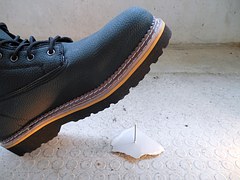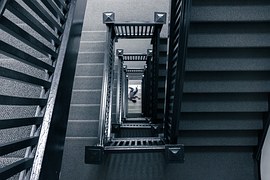If I Slip, Trip Or Fall in Baltimore, Can I Sue For Compensation?

It is a common scenario. An individual slips, trips or falls, injuring themselves in a substantial way, and necessarily asks if I Slip, Trip Or Fall in Baltimore, Can I Sue For Compensation? If fault is suspected, a call to an Experienced Baltimore Personal Injury Lawyer may ensue. After necessary medical arrangements are made, those necessary next questions are often:
- Who is responsible for what has happened to me, and
- Am I entitled to compensation for my injuries?
The reasons for someone losing their footing, or balance falling and injuring themselves are maybe as countless as the number of falls.
- Cracks
- Unforeseen changes in elevation
- Stairways in a state of disrepair
- Uneven services
- Bunched carpeting
- Floor mats
- Slippery substances on showroom or store floors and walkways
The list is essentially endless. The common thread running through all of these situations is that an object or substance has caused someone to lose their balance, crash to the ground or floor, and potentially sustain an injury. The services of a Experienced Baltimore Personal Injury Lawyer are likely required. The essential inquiry though, is who, if anyone is responsible for the condition that caused the fall? If you Slip, Trip Or Fall in Baltimore, you can sue for compensation, but the legal hurdle can be high.
There is a common perception that some form of strict liability may apply in these situations. In other words, if someone falls, the premises owner is automatically responsible. Nothing could be further from the truth. Fault, in this case, negligence, must be proved.
These are difficult cases to win. In fact, many lawyers do not handle these types of cases because of the difficult proof requirements necessary to prevail. Under Maryland law, the owner, maintainer, or person in possession property is generally responsible for dangerous and defective conditions on that property if they knew or should have known that the property harbored a dangerous or defective condition.

There are variations on that general theme, depending on an injured individual’s status on the land. But the idea in all cases is the same. The difficulty in these cases is not proving that there was a slip, a trip, or a fall. Rather the difficulty is in demonstrating that the person responsible for the premises knew or should have known of the dangerous defective condition causing the fall. It is here that many if not most of these cases fail. Although the law is clear that a person responsible for premises is charged with the duty to inspect and to become aware of dangerous and defective conditions where a reasonable person in their shoes would have been aware, many courts nonetheless impose an actual knowledge standard. In so doing, the plaintiff is tasked with the almost insurmountable burden of proving the landowner had actual knowledge of the condition, yet chose to ignore it. A successful plaintiff is entitled to the same type of compensation as a plaintiff in any other type of tort case: economic as well as non-economic damages. As Attorney Eric T. Kirk will tell you.
Baltimore law imposes additional hurdles to the successful prosecution of these types of cases: the related doctrines of contributory negligence and assumption of the risk. Contributory negligence is an absolute bar to recovery under the law. The argument here is that if there was something in an individual’s path, that ultimately caused them to slip, trip or fall, them in the exercise of due diligence and care for their own safety, that individual should have perceived and avoided the object that caused them to fall.

Assumption of the risk is a similar, but different, argument. Here, an insurance company or defense lawyer would argue that the individual knew there was a risk that they could have slipped, tripped or fallen, yet chose to tread in the questionable area in any event. Perhaps the paradigmatic, quintessential, archetypal, happening giving rise to this argument is where an individual knowingly walks on an icy or wet surface and subsequently falls. Over the years, I’ve had countless cases where individuals have lost their balance, fallen, and sustained significant injuries- some requiring surgery, some resulting in broken bones, and significant back or head injuries that seemed entirely out of proportion to the seemingly benign notion “that I slipped and I fell”. These can be life-altering events.



